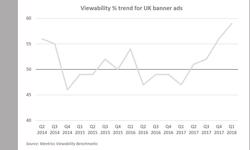The report looks at the impact of advertising on the wider UK economy and contains some truly eye-catching headline statistics:
• Annually, firms spend £16bn on advertising, resulting in at least a £100bn contribution to UK GDP
• 550,000 UK jobs depend on advertising
• Advertising contributes to £76 billion in total sales to the UK economy. The incremental benefit is estimated as £7 billion per year.
The report is an earnest attempt by the Advertising Association to provide independent research outlining the true size and scope of the UK advertising industry, and in turn, to underline advertising’s position as a key driver of growth within the economy.
Beyond the headline figures, the report delves deeper into the mechanics of the advertising industry offering compelling statistical insights, supported by a series of case studies and other analysis. The report highlights the positive transformative effect of advertising on the economy & the markets, innovation & differentiation, competition & pricing, the media & creative industries, employment, the digital economy, exports and more.
In a section entitled, ‘Advertising Makes Markets Work’, the report makes an attempt to explain the basic utility of advertising:
“Advertising creates and sustains relationships between consumers and companies.* It informs consumers about existing products and innovations, helping the best ideas, products and brands to succeed.
Advertising helps companies communicate their prices and products, allowing people to make informed choices about who they buy from and at what price. Advertising is at the centre of a virtuous circle of innovation, competition and market expansion.
Advertising speeds up the communication of product designs and innovations, enabling faster return on investment. It helps companies with the best ideas succeed and funds research and development. It also offers firms the opportunity to differentiate their products to consumers, increasing the range of choice available and establishing brands through which manufacturers are made accountable and which people can therefore trust.”
* ‘Consumers’ can be individuals or businesses, depending on the form of advertising.
For people already involved in advertising, the central themes of this concise description will have formed at least part of their sales pitch for many years. What this published statement now provides is an undeniable, unshakable, logical argument that those in advertising will have suspected for some time, and can now, if they so choose, shout from the rooftops; advertising is a fundamental driver of industry and economic growth, not simply a product of it.
The importance of advertising to the creative industries is highlighted in section 4 of the report where it states that, “without advertising many firms in these industries would simply not exist”. It continues: “As with the television sector, UK magazine and newspaper businesses would also be unrecognisable without advertising. We estimate that two-thirds of newspaper revenues come from advertising, enabling a daily and diverse supply of news and comment.”
In section 7 of the report, it acknowledges advertising’s role in the development of the internet through providing much of the funding required for such elements as free search, social media, instant messaging and, not forgetting, the majority of websites. It goes on to say, “the growth of the digital economy has also changed the way that people research products and make purchases.” A fact that is helping to shape the digital strategies of a great number of UK publishers.
It is a little too early to be able to gauge the wider impact of this report. No doubt it will be a shot in the arm for the reported 550,000 UK jobs that depend on advertising. The ability of the report to help restore confidence within the UK advertising sector, to stimulate businesses to advertise, to transform the conversation about advertising and influence policy-makers, will be measurable with time. For now though, those involved at the heart of the industry will have to carry on doing what they do best; creating, designing, producing and selling advertising.
Download the Advertising Association’s full report.
You can follow the discussion surrounding the report on Twitter using hashtag #adpays.












